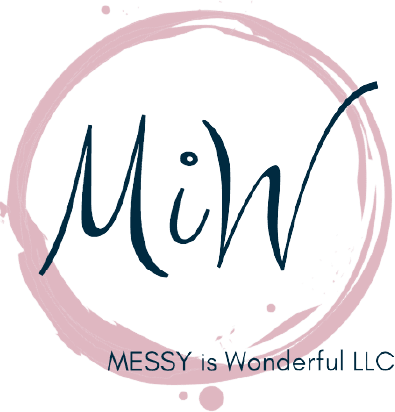I’ve been involved in a lot of sales training where I learned about how to “build rapport” as a means to get customers and close sales.
I never really liked it, this tactic of “building rapport”, and consequently, I was never very good at the traditional “closing” tactics I was being taught. When I was involved in sales situations where I’d been trained that “building rapport” was the appropriate tactic, I usually felt tongue tied, and awkward, and quite honestly, I felt like a big PHONY. I’m sure my discomfort translated to my sales prospects, and things usually didn’t go very well.
When I began learning about and subsequently being involved in negotiations, I brought some of this “sales training” with me, but it led to the same discomfort and unease in these new negotiation situations.
I began to watch others who seemed much more at ease, and eventually abandoned the “tactic” of building rapport, in favor of a much more effective mindset.
“Rapport” is defined as relation marked by harmony, conformity, accord or affinity. Certainly, none of these things are bad or misplaced in a sales or negotiation relationship.
The problem with “building rapport” as a sales tactic is that the tactic attempts to short-cut the process of developing harmony, conformity, accord or affinity. In fact, most sales tactics involving developing rapport are merely attempts to influence the behavior of another party by creating some sense of relationship. (Some would argue this is nothing more than “manipulation” and I would tend to agree).

You may have a story about how “rapport building” tactics went awry for you, but I’d like to share a story with you that has stuck with me because it exactly highlights why this tactic sits so uneasy with me. I don’t remember where I heard this story, but it has stuck with me for years.
A company rep went to see a potential new customer. He was taken into his prospect’s office, and as he had been taught, he immediately began to scan the room for an item that he could use to “build rapport”.
He saw a picture of a young boy in a baseball uniform, and so, as he had been taught, he wanted to show the prospect they were alike and therefore had “affinity”, so he began to talk about how his son was also a baseball player and wasn’t it great to have sons who played sports. His prospect’s face fell, and he was obviously shaken. It was pretty obvious the meeting was over, and the prospect got up and began to escort the rep from his office.
What the rep didn’t know was that the prospect had lost his son in an accident, and bringing up his son had caused a huge amount of distress.
Now, obviously, this is an extreme example of how rapport building can go wrong….but when we spend time and effort getting another party to a meeting, a negotiation or a sales appointment, we can’t risk this kind of result, can we?
There is a better option than “building rapport”.
Instead of trying to “short-cut” to a trusting relationship, focus on CONNECTION with your counter party or sales prospect. I believe that connection begins with a mindset of curiosity. When we are GENUINELY INTERESTED in others, it is much easier to build connection, which can then lead to the trusting relationship that is necessary to negotiate and close deals.
So, what is the secret to connecting? In People Buy You, author Jeb Blount shares the key to connecting with others: “make them feel important”. It’s really that simple…when people feel that you genuinely care about them, and value them, they feel important, AND they feel connected to you.
I’m not suggesting (and neither is Mr. Blount) that this is simply another “tactic”. Customers, and counter-parties know fake curiosity from genuine caring. Your genuine curiosity about the people you are doing business with shows up in an extremely powerful, yet often forgotten skill…
the skill of LISTENING.
If you want to develop connection with your clients, counter-parties and prospects, fine tune your listening skills. I know that listening seems so basic, and so “non-tech” as a solution to the issue of how to connect, but if you look around, or ask your friends, I’d be willing to bet that most people would say that listening is a lost art. Those who are good at listening stand out because skilled listening is so rare these days, when there is so much grabbing our attention in our fast paced lives and business transactions.
What does it take to be a good listener? Jeb Blount breaks it down to the most basic element: “The bottom line is that listening requires that you give your attention to the other person. To do so, you will have to develop the discipline to turn off your natural inclination to focus on your thoughts and put aside your desire to talk to satisfy your own need to feel important.” (People Buy You).
Here are three ways to develop your listening skill:
- Become curious about the other person. Remind yourself that your task is to learn information about this person, what they may be facing, what they are trying to solve.
- Don’t listen to respond…listen to understand. When we are listening to respond, we go immediately into a different mode….we are no longer focused on the other person, but on what our response to what they are saying will be. Listening to understand will bring much more information. Sometimes this slows down the pace of the conversation, but it also allows you to really hear what the other person is saying. If sales is the process of matching solutions to problems, then we truly must understand the problem. Similarly, in negotiations, when you take the time to understand your counter-party’s position, interests, and concerns, you have a better possibility of finding solutions that meet those positions, interests and concerns.
- Practice! Since listening is something that most of us aren’t so good at, we will develop our skills when we set out intentionally to improve. So, practice listening to understand. Practice being curious, instead of coming from a position of “knowing” everything you need to know about the person or situation. Ask someone you know how you’re doing in the listening category…(and then really listen to what they tell you).
Connecting is a key business skill and developing genuine curiosity and listening skills are the keys to being a master connector. Let’s forget about taking the shortcut to “building rapport” and instead make the effort to build connections.
I predict you’ll have much better long term success!
